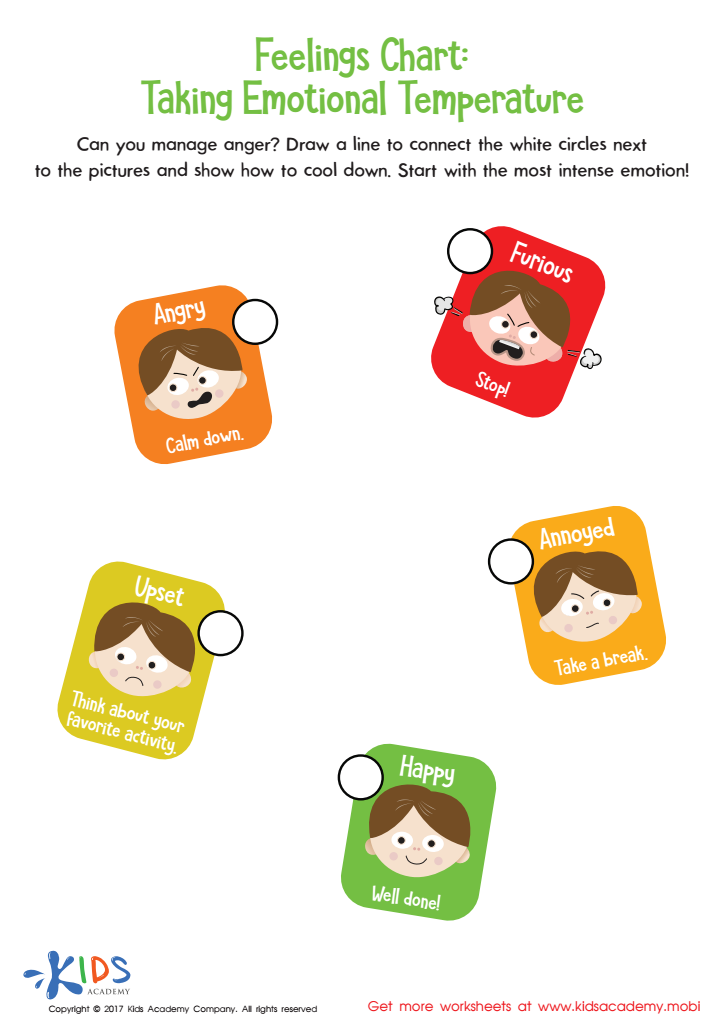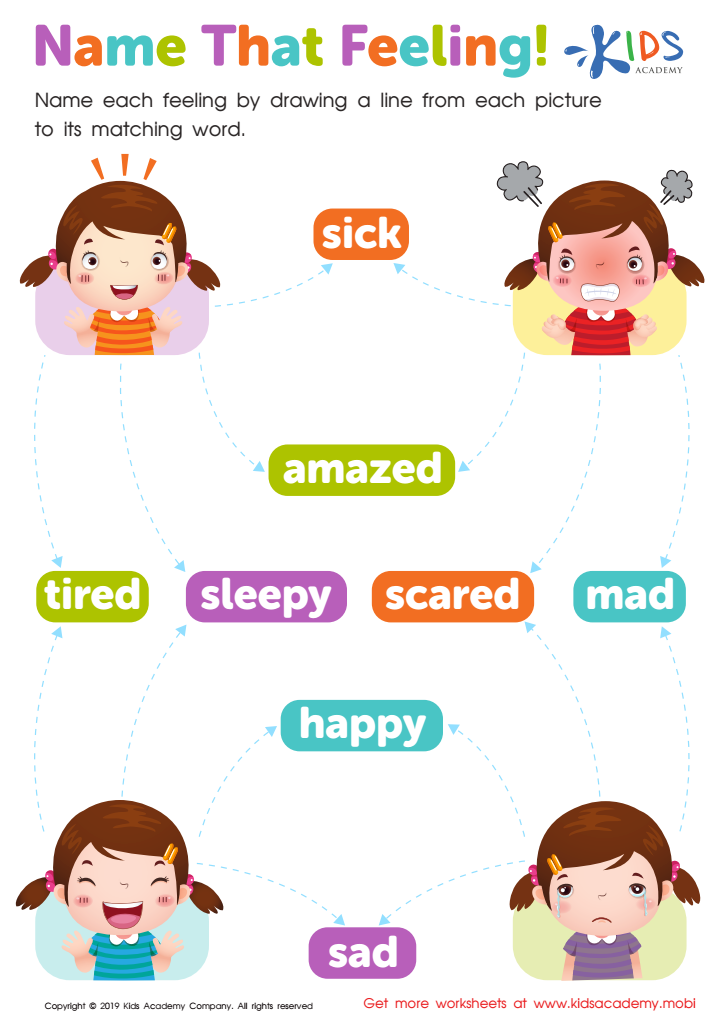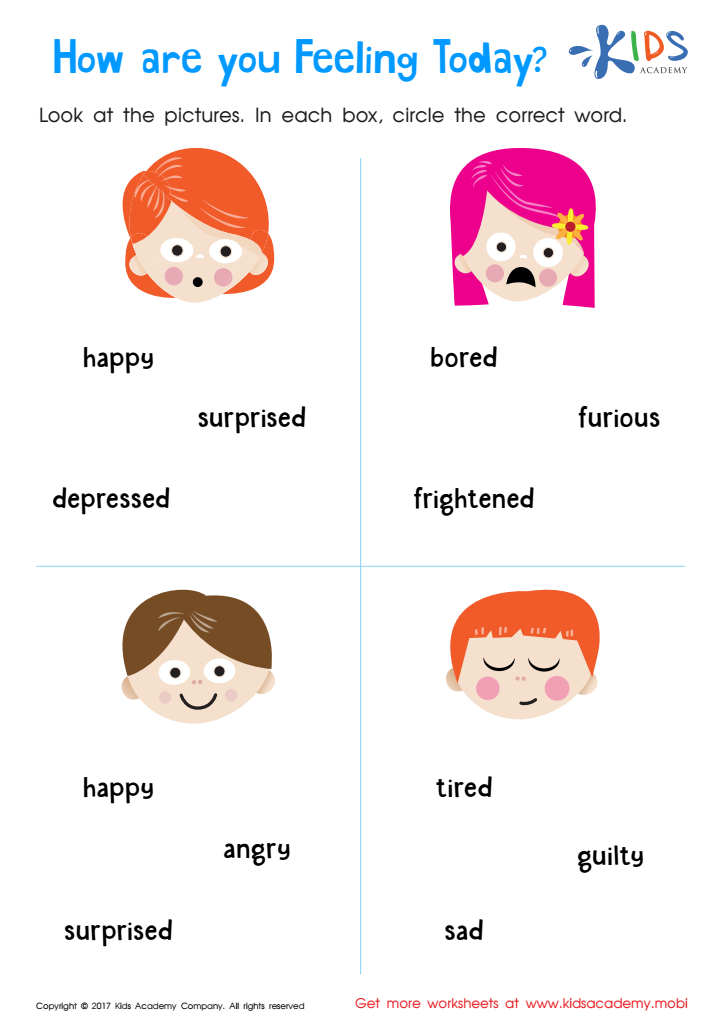Emotional identification Extra Challenge Worksheets for Ages 5-8
3 filtered results
-
From - To
Unlock the power of emotional awareness with our "Emotional Identification Extra Challenge Worksheets" designed specifically for ages 5-8. These engaging worksheets provide young learners with a fun and interactive way to explore and identify various emotions. With stimulating activities, including matching games, drawing prompts, and reflection questions, children will enhance their emotional vocabulary and develop essential social skills. Ideal for both classroom and home use, these extra challenge worksheets encourage critical thinking and foster empathy. Equip your child with the tools they need to understand their emotions and those of others, promoting a more emotionally intelligent generation.


Feelings Chart Worksheet


Name that Feeling Worksheet


Understanding Feelings Worksheet
Emotional identification is an essential skill for children aged 5-8, as it lays the groundwork for their emotional intelligence and interpersonal relationships. For parents and teachers, fostering this skill is crucial for several reasons. First, the ability to recognize and label emotions helps children better understand their own feelings, leading to improved self-regulation and coping strategies. This understanding can reduce behavioral issues and enhance focus in the classroom.
Second, emotional identification promotes empathy. By teaching children to recognize emotions in themselves and others, they become more considerate peers. This awareness helps build a supportive classroom environment where students feel safe expressing themselves, leading to enhanced collaboration and reduced bullying.
Additionally, fostering emotional identification encourages effective communication skills. Children who can articulate their feelings are more likely to engage in constructive dialogues, which is critical for conflict resolution.
Finally, emotional identification prepares children for future challenges—both academically and socially. Life is filled with ups and downs, and those who can navigate their emotions effectively tend to be more resilient. Therefore, parents and teachers should actively promote emotional identification to equip children with the tools they need for a successful, fulfilling future.

 Assign to My Students
Assign to My Students




















